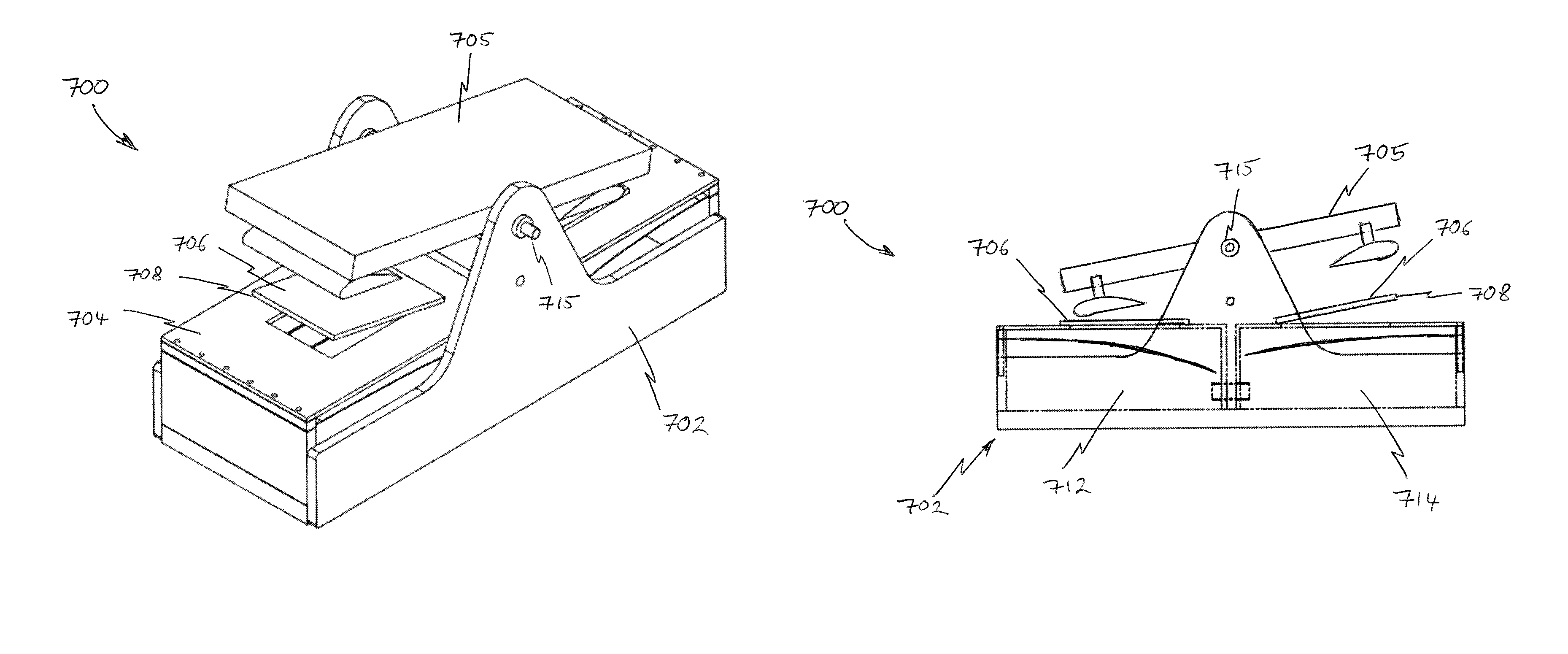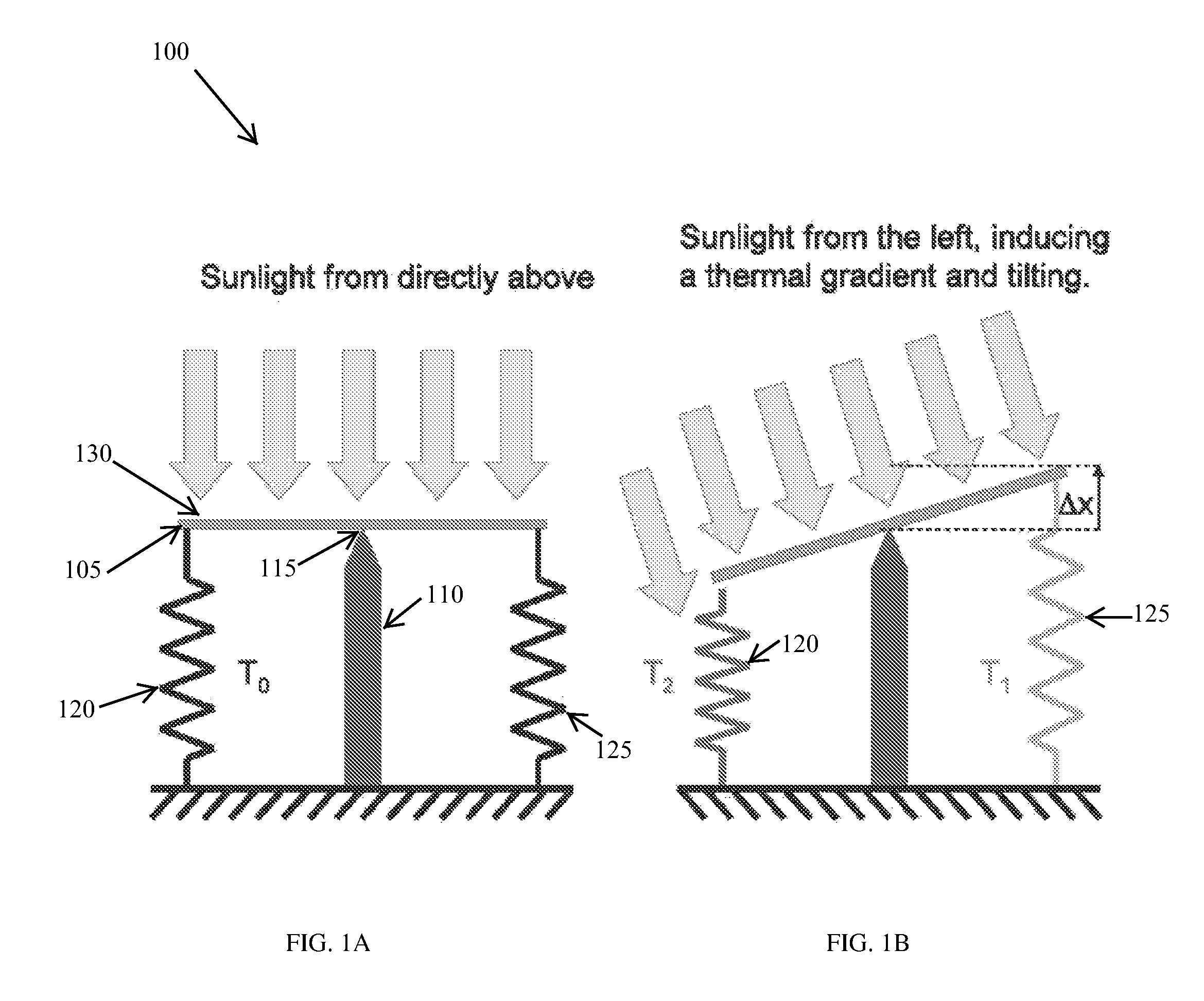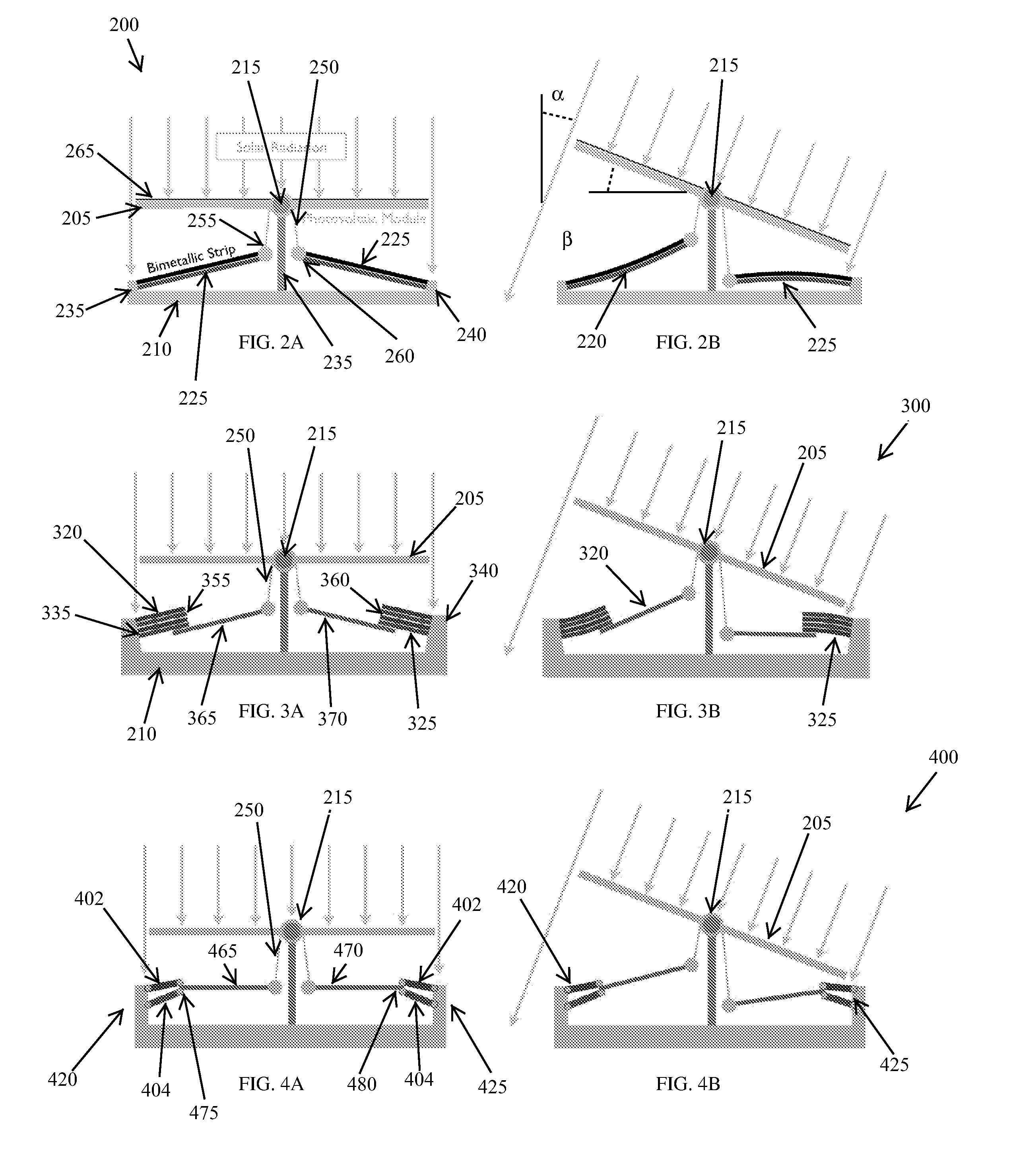Thermal-mechanical positioning for radiation tracking
a technology of radiation tracking and thermal-mechanical positioning, which is applied in the direction of solar heat collector safety, solar ray transmission, light and heating apparatus, etc., can solve the problems of reducing system efficiency, reducing manufacturing and maintenance costs, and system maintenance and other problems, to achieve the effect of low cost, low maintenance and high efficiency
- Summary
- Abstract
- Description
- Claims
- Application Information
AI Technical Summary
Benefits of technology
Problems solved by technology
Method used
Image
Examples
Embodiment Construction
[0058]Various embodiments of the present invention provide for the tracking of a radiation source (e.g., the sun) utilizing a system for controlling the position and / or orientation of one or more solar panels, photovoltaic modules, collectors, and / or reflectors without the need for electric motors, photonic sensors, and / or electrical circuitry. In alternative embodiments, any appropriate solar element, measurement device, tracking device, and / or combination thereof, may be utilized with the tracking systems and methods described herein. In some instances, certain conventional powered elements and controls may be utilized in combination with the passive systems described herein, to achieve a combined benefit, albeit at much lower power consumption levels than would be attainable without the addition of the passive system components.
[0059]In contrast to systems requiring electrically powered actuation for tracking, the passive systems and methods described herein utilize one or more e...
PUM
 Login to View More
Login to View More Abstract
Description
Claims
Application Information
 Login to View More
Login to View More - R&D
- Intellectual Property
- Life Sciences
- Materials
- Tech Scout
- Unparalleled Data Quality
- Higher Quality Content
- 60% Fewer Hallucinations
Browse by: Latest US Patents, China's latest patents, Technical Efficacy Thesaurus, Application Domain, Technology Topic, Popular Technical Reports.
© 2025 PatSnap. All rights reserved.Legal|Privacy policy|Modern Slavery Act Transparency Statement|Sitemap|About US| Contact US: help@patsnap.com



